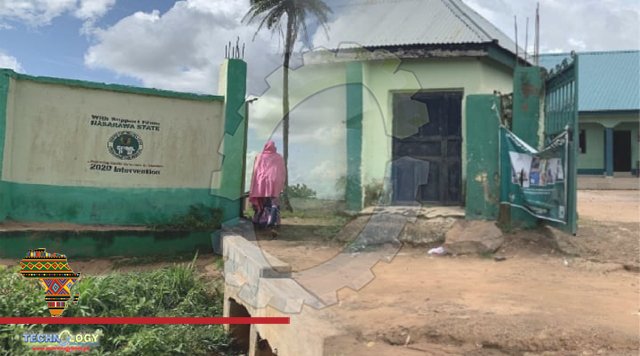BHCPF is meeting the government’s target of strengthening primary Healthcare Delivery in Nasarawa facilities for effective service delivery, but the efforts still look like a drop in the ocean.

Ibrahim Ibrahim, 40, was bleeding profusely from deep cuts on his head, thigh and ankle inflicted by some cattle herders who invaded his melon farm. He had been rushed to Okpatta Primary Health Care Centre in Agbashi Ward of Doma Local Government Area, Nasarawa State, after the attack on 30 June. Healthcare Delivery in Nasarawa, Community health workers on duty stopped the bleeding, stitched and dressed the wounds, and administered analgesics before referring the patient to another primary health care facility at Arumangye. It was the melon season and a time for harvesting in Doma, a community outside Lafia, the state capital. Farmers relocate to their farms for between two weeks and two months to harvest and process their melon, known locally as Egusi. Mr Ibrahim and his family were doing this when, around 11 p.m., the herders attacked them. While his children and wife fled to call for help, he stayed to defend his farm. But he was overpowered by the attackers and might have bled to death, but for the timely attention he received at the nearby primary healthcare centre. “I’m sure I would have died before my family could take me to another place if nobody was at that hospital. They were able to stabilise me, stitch the wounds and give me painkillers,” Mr Ibrahim said of the quality of service he received at the public facility. Mr Ibrahim’s story is part of the successes of the Basic Health Care Provision Fund (BHCPF) in providing emergency medical response services to rural communities and the vulnerable in Nigeria. Just like Mr Ibrahim, 60-year-old Habu Sanusi, a resident of Aramangye, is impressed with services at the primary health care centre in the community. For him, the PHC is t his family hospital. “The clinic is doing okay. They do their best whenever a case of sickness is reported to them, and if it is above them, they normally refer patients to the general hospital in Doma. My family has been using it for a long time for childbirth, malaria and other minor illnesses,” Mr Sanusi said to this reporter.
Healthcare Delivery in Nasarawa, The Federal Government established the BHCPF, in 2014, under Section 11 of the National Health Act; to provide funding to improve access to primary health care. The Fund provides a Basic Minimum Package of Health Services (BMPHS) aimed at increasing the fiscal space for health, strengthening the national health system, particularly at the primary health care (PHC) level and ensuring access to healthcare for all. Healthcare Delivery in Nasarawa However, the actual implementation of the law, including the release of funds, did not commence until 2018. The BHCPF seeks to achieve at least one fully functional public primary health care facility in each political ward. Nasarawa State, in north-central Nigeria, has 769 PHCs, with 147 captured in the BHCPF since 2021. This represents one PHC per ward in the state. According to the Director of Planning, Research and Statistics, Nasarawa State Primary Healthcare Development Agency (NPHCDA), Stephen Sasetu, the facilities have received funding for four quarters. “Nasarawa State came on board last year. As a result, we were able to fulfil the criteria to start receiving funds,” Mr Sasetu said in an interview. “The facilities have received funding for four quarters. Two quarters last year and two quarters this year. For Nasarawa State, 147 primary health care centres, one PHC per ward, are currently benefiting from the BHCPF.” “It is not much. It is just about N100,000 for each PHC every month,” Mr Sasetu said. “In a quarter, it is N300,000.” He explained further that there is a guide on how to spend the fund, which specifies that 35 per cent goes into supporting payment of human resources and 25 per cent for drugs. The federal government has paid N500 million to the Fund in Nasarawa State through the Federal Ministry of Health. At the same time, the state has also started contributing 0.5 per cent of its consolidated revenue to the fund. Mr Sasetu confirmed this but noted that its contribution is below the prescribed one per cent. “For Nasarawa State, there have been some contributions, but it is not matching yet. By matching, I mean you know from the federal allocation, it is one per cent of consolidated revenue. So the state should also do at least one per cent, but that is not the case in many states.
Source: This news is originally published by allafrica